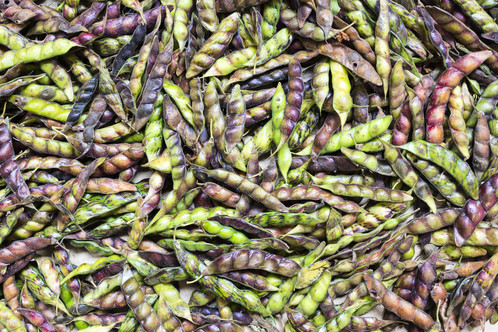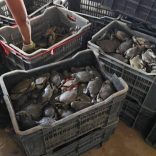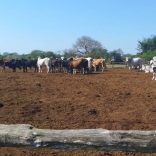Mozambique: Vegetable exports fell 42.5% YoY in Q1 amid post-election unrest – central bank
Unsold pigeon peas at risk of rotting in Cabo Delgado

Over 300 tonnes of pigeon peas harvested this year in the districts of Ancuabe, Montpuez, Chiure and Balama, all in the northern Mozambican province of Cabo Delgado, are at risk of rotting in the hands of peasant farmers, for lack of a market, reports Saturday’s issue of the Maputo daily “Noticias”.
The farmers had been assured of a guaranteed export market for pigeon peas. The crop would all be exported to India, under a bilateral deal between the Mozambican and Indian governments. But India unexpectedly reneged on the deal.
In August the Indian authorities imposed quotas on pigeon pea imports, moving this crop from the “free” to the “restricted” category of imports. The new rules state that only 200,000 tonnes of pigeon peas can be imported in any one fiscal year. In the 2016/2017 fiscal year, which ended on 31 March, India imported 703,540 tonnes of pigeon peas, from many countries.
These imports came on top of a bumper pigeon pea crop in India, and were blamed for depressing the prices paid to Indian producers.
However, the government said the restrictions would not apply in cases where India has bilateral agreements on pigeon peas and the first secretary at the Indian Embassy, Hansaj Singh Verma, told reporters that the measure would not, in the initial phase, affect Mozambique.
Exports of pigeon peas (known in India as dal) fall under a memorandum of understanding signed in 2016, during the visit to Mozambique of Indian Prime Minister Narendra Modi. This memorandum is valid for five years and Verma said it will be fully honoured.
Also Read: India inks MoU with Mozambique to import 3.75 lakh tonne pulses
Also Read: Modi’s visit: India and Mozambique to sign agreements on agriculture and civil aviation
But the experience of farmers in Cabo Delgado suggests this is not the case. They blame the Indian ban for the collapse in the producer price of pigeon peas. Before the ban, the price paid to farmers was 60 meticais (about one US dollar), a kilo, but the price has now fallen to 15 or even 10 meticais a kilo.
One of the farmers affected in Ancuabe district, Ansumane Tawacali, told “Noticias” these low prices do not compensate peasants for their work, and he wanted the Mozambican government to step in.
“In previous years, I used to grow cotton”, he said, “but when cotton prices began to fall I thought it best to switch to other crops such as sesame and beans. Last year, the price of pigeon peas convinced me to open a bigger field, where I produced a great deal. Unfortunately I now have the bad luck that I cannot sell my production at a price that would reward me for my effort”.
The project PROMER (Promotion of Agricultural Markets), which is financed by the International Fund for Agricultural Development (IFAD), recognises that Cabo Delgado farmers are facing serious difficulties in selling their crops. PROMER official Vasco Mondlane had no doubt that the restrictions imposed by the Indian government were to blame.
“We are assisting 35 peasant association in Montepuez district alone”, he said, “and just in this district about 100 tonnes of pigeon peas are still in the producers’ hands due to the lack of a market. Some buyers appear, but offer prices that do not compensate for the investment made by the farmers”.
PROMER is trying to persuade a processing company in Nampula to buy up the Cabo Delgado pigeon peas. But this company also is failing to offer a price which the farmers would regard as reasonable.
If this situation prevails, many famers will stop growing pigeon peas altogether.












Leave a Reply
Be the First to Comment!
You must be logged in to post a comment.
You must be logged in to post a comment.